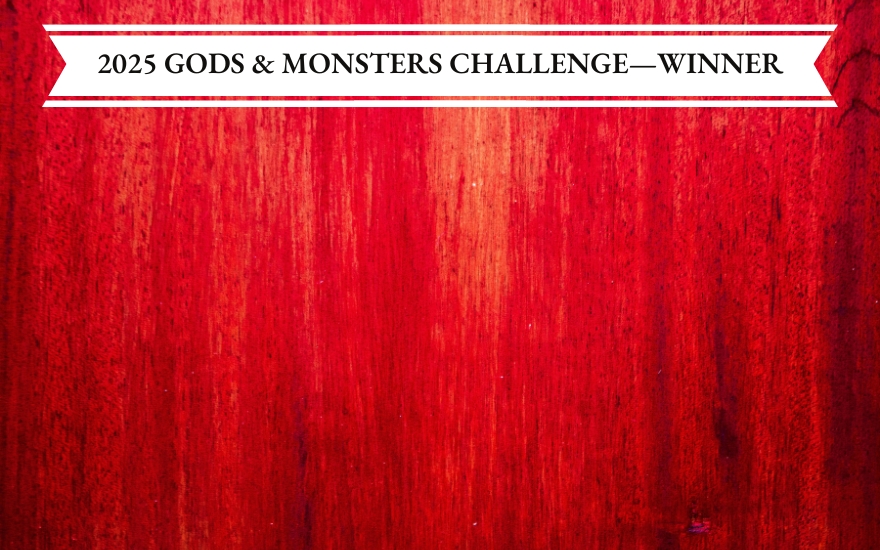She wore her bones like silk.
Not with shame, but with memory. Each rib a prayer. Each vertebra a vow. They had once dressed her in red silk and called her divine. They used to carve her name into temple stone. Midwives and mourners and those who bled for too long prayed to her in secret. She cradled them all. She was the goddess of quiet endings—of wilted petals, of final breaths drawn gently in old beds.
Then, the men decided they preferred beginnings. Now they shriek when her hip bones click like wind chimes. But she has walked through worse.
The world had forgotten her name. They remembered the monk. They remembered the monkey and his journey. But not the woman made of ivory and hunger.
She came the first time as a wandering village girl. Adorned in red. She was soft-faced, wide-eyed, with fruit cupped in her palms like an offering. The monk looked at her with pity. Before the monk took a bite, the monkey struck her down with his staff. Her body of bones clattered to the ground. She had never felt as fragile as porcelain before that moment.
“This fruit was poisoned,” he told the monk.
She flinched. It was not. It might have been bitter, yes, but so was the truth. They buried her gently. At least they dug a grave. The dirt that evening became her soft cocoon. Beneath the dirt, she waited there and thought of the women who once lit candles in bowls of oil and placed them at her feet.
She came the second time as a mother. Veil over her skull, draped down to her feet. Wrinkled hands that still shook with unwavering love. “Have you seen my daughter?” she asked, voice warbling like wind through reeds. “She wore red. She brought you fruit.”
The monk’s mouth pressed tight. She thought she sensed guilt in his eyes. But perhaps it was just discomfort, the kind that makes villagers shut their doors at the sight of a mother with no child.
The monkey squinted. “You again,” he said, and raised his staff. This time, they didn’t bury her.
She came the third time as an elderly man. She knew then that power only listens to what it fears. She sculpted herself in fear’s image, voice low like gusty storm-wind. Back crooked, cane in hand, beard drawn in charcoal. “I am looking for my wife and my daughter,” she said calmly.
Now, they looked afraid. Of him. Not because they sensed power, but because they respected him now, with his low, raspy voice that came from a masculine throat. The monk bowed his head. “Forgive us,” he whispered. Finally, she saw the guilt.
The monkey circled her again, examining. He hissed. Then he struck her down for a final time. She didn’t feel the shock this time. Her skull rolled to his feet. The monk stared. The villagers gasped, stepped back. They said she was trying to eat him, that she wanted his flesh. But she had tasted godhood before; she had dined on praise and incense. Now, she only craved to be remembered.
They told each other she had always been a monster and that the bones were cursed. The first girl in red was a trick of the forest, a punishment sent to test the monk’s resolve. The veiled mother was a ploy from a distant land. The man was never a real man. A good story spreads faster than the truth. So they wrapped her in another lie.
Now, she rests beneath the trees.
Moss grows between her ribs. A vine curls around her broken jaw. Wind whistles through her chest like a flute, high-pitched and fluent in delicacy. The trees still speak of her name, as she’s carried by the wind into the forgotten corners of the world.
But she is not evil. She is inevitable. She is how every woman is seen when the flower rots, when the fruit sours. She’s the deity people pretend doesn’t exist, her name scrubbed from scrolls. She’s still hungry.
And one morning, quiet as breath, a little girl finds her. Not all of her. Just a single bone, bleached smooth by time, peeking from the roots like a secret. The girl doesn’t scream. She doesn’t run. She brushes the soil away, gentle as a prayer, and holds it up to the light.
Something sacred hums softly, like wind through hollow bones.

